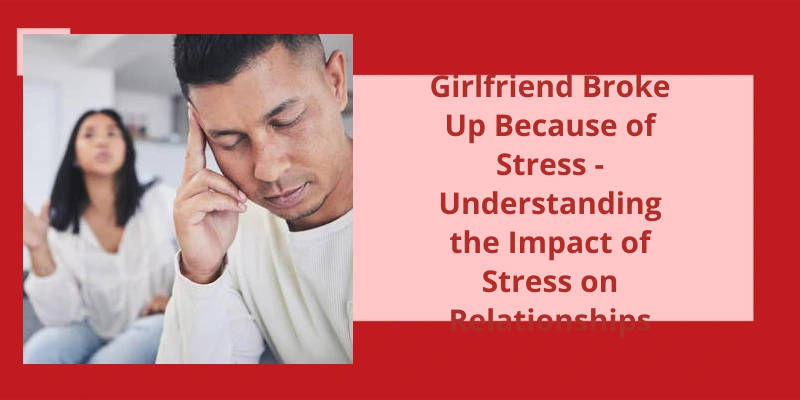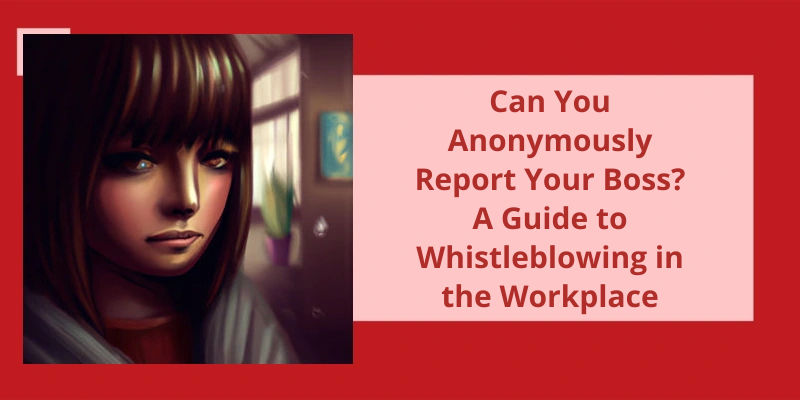Navigating the complexities of romantic relationships can be an intricate dance, where emotions, communication, and external factors all play a vital role. Sometimes, unforeseen circumstances and stressors can place immense strain on a bond, leading to fractures that can ultimately result in a painful breakup. One such circumstance that can significantly impact a relationship is stress, a pervasive and often overwhelming force that can seep into numerous aspects of our lives. In these moments, it’s essential to comprehend the profound impact that stress can have on individuals and their ability to maintain healthy connections. Within the context of a girlfriend breaking up because of stress, exploring the effects of these external pressures and the ways in which they intertwine with interpersonal dynamics can shed light on the complex nature of these situations. By deepening our understanding of stress and it’s influence on relationships, we can gain insights that may help navigate similar challenges in the future and potentially even work towards reconciling strained connections.
How Can I Comfort My Girlfriend?
Stress can take a toll on relationships, and it’s important to understand the impact it can have on your girlfriends emotional state. When your girlfriend is upset, it’s essential to approach the situation with empathy and compassion. One of the first steps you can take to comfort her is to simply ask whats wrong. By opening up a line of communication, youre showing her that you care about her well-being and want to understand her struggles.
It’s crucial to let your girlfriend know that you’re there for her and that you genuinely want to help her through whatever shes going through. Reassure her that she doesn’t have to face her problems alone and that you’re committed to supporting her every step of the way. This reassurance can provide her with a sense of security and comfort during difficult times.
However, it’s important to remember that everyone copes with stress differently. Your girlfriend may not feel like discussing her problems right away, and thats okay. It’s crucial to respect her boundaries and let her dictate the pace at which she wants to open up. Just letting her know that you love her and are there for her can be a comforting gesture in itself.
In addition to emotional support, consider offering practical help as well. Whether it’s assisting with tasks that may be causing her stress, running errands, or simply being a listening ear, these acts of kindness can go a long way in comforting your girlfriend. Sometimes, the smallest gestures can make a significant impact, so be attentive to her needs and do what you can to alleviate any burdens she may be carrying.
Lastly, it’s essential to remind your girlfriend to take care of herself during stressful times. Encourage her to engage in self-care activities that she finds comforting, such as exercise, meditation, or spending time with loved ones. Remind her of the importance of rest and relaxation, as these practices can help reduce stress levels and promote overall well-being.
In times of difficulty, it’s natural to wonder if a broken relationship can truly be mended after a breakup. Addressing deep-rooted issues like emotional withholding and the silent treatment may seem like insurmountable obstacles. However, with dedication and the support of couples relationship coaching, it’s possible to transform your relationship and rebuild the trust and love that once flourished between you and your partner. So, don’t lose hope just yet, for there’s a chance to mend what’s been broken.
Can a Broken Relationship Be Fixed After a Breakup?
Can a broken relationship be fixed after a breakup? It’s indeed possible, although it isn’t an easy task. When a relationship breaks down, it often happens due to unresolved issues such as emotional withholding and silent treatment. These issues can create a significant amount of stress and strain on both partners, leading to the breakdown of trust and communication. However, with the right approach and a sincere commitment to working things out, most relationships can be changed for the better.
In addition to time, seeking professional help through couples relationship coaching can be incredibly beneficial. A trained therapist or coach can provide guidance and support, helping couples navigate through their challenges and learn healthier ways of communicating and resolving conflicts. The coach can help both partners identify and address the underlying causes of stress and provide tools and strategies to manage it effectively.
Open and honest communication is another crucial aspect of repairing a broken relationship. Both partners need to be willing to discuss their feelings, needs, and concerns without judgment or anger. This may involve learning new communication skills, such as active listening and assertiveness, to express emotions and needs effectively.
Rebuilding trust is often a significant hurdle in repairing a broken relationship. Trust can be rebuilt by being honest and transparent, following through on commitments, and showing genuine remorse for past actions.
Ultimately, saving a relationship after a breakup requires both partners to be committed to change and growth. It requires patience, understanding, and a willingness to work on oneself and the relationship. With the right mindset, support, and effort, most relationships can be repaired, allowing for a stronger and healthier connection between partners.
The Importance of Self-Reflection and Personal Growth in Repairing a Broken Relationship
When a relationship breaks down due to stress, it’s important to prioritize self-reflection and personal growth to repair the damage. Stress can impact the way we communicate, handle conflicts, and make decisions, often leading to misunderstandings and resentment in a relationship. Taking the time to reflect on our own actions, emotions, and coping mechanisms can help us gain insight into how stress has affected the relationship.
Self-reflection allows us to identify patterns of behavior or thought that may have contributed to the relationship’s deterioration. This awareness is crucial in making positive changes and adjusting our responses to stressors. It also enables us to take responsibility for our part in the breakdown and work toward personal growth.
Personal growth is essential to repairing a broken relationship because it helps us develop healthier coping mechanisms and effective communication skills. Engaging in activities that promote personal well-being, such as therapy, mindfulness practices, or self-care, can contribute to our overall emotional and mental health. As we grow personally, we become better equipped to handle stress, communicate our needs, and support our partner in navigating their stressors.
Repairing a broken relationship takes time and effort from both individuals involved. By prioritizing self-reflection and personal growth, we create a foundation for rebuilding trust, fostering understanding, and nurturing a healthier, more resilient partnership.
Many people experience stress in their relationships, and finding ways to address and alleviate this stress is essential for a healthy partnership. Here are some valuable tips for dealing with relationship stress: change the scenery and take a break, use “I” instead of “you” when discussing issues, ask for help or offer assistance, actively listen to your partner’s concerns without immediately becoming defensive, consider the root causes of their stress, and seek the guidance of a couples counselor if needed.
How Do I Stop Being Stressed in My Relationship?
One of the most frustrating experiences in a relationship can be dealing with stress. When stress becomes overwhelming, it can wreak havoc on the connection between partners. If you find yourself asking, “How do I stop being stressed in my relationship?” there are steps you can take to manage and reduce relationship stress.
One way to alleviate relationship stress is by changing the scenery and taking a break. Sometimes, stepping away from the situation and creating a new environment can provide much-needed perspective and relief. Whether it’s going for a walk together, going on a weekend trip, or even just spending a few hours apart, a change of scenery can help ease tension and provide a fresh start.
When conflicts arise, it’s important to communicate effectively. Instead of placing blame on your partner, try using “I” statements to express your feelings. This approach takes responsibility for your emotions and avoids making the other person defensive. For example, instead of saying, “You always make me feel ignored,” try saying, “I feel ignored when we don’t spend quality time together.”
Another tactic for dealing with relationship stress is asking for help or offering assistance. Sometimes it’s difficult to navigate through stressful situations alone. Simply reaching out and voicing your need for support can make a world of difference. And on the flip side, offering help to your partner can show them that youre invested in their well-being and are willing to be there for them.
Active listening is crucial when managing relationship stress. Instead of focusing on preparing your defense or rebutting your partners arguments, truly hear them out. Give them the space to express their concerns, frustrations, and fears. By doing so, you validate their feelings and show that youre dedicated to understanding their perspective.
Is it work-related pressure? Financial strain? Personal issues? By understanding the underlying factors triggering their stress, you can provide the right support and work towards finding solutions together.
If relationship stress becomes overwhelming and persists despite your efforts, seeking the help of a couples counselor can be a beneficial step. These professionals are trained to navigate complex relationship dynamics and provide objective guidance. They can help you and your partner learn effective coping mechanisms, enhance communication skills, and develop strategies to manage stress in healthy ways. Remember, you don’t have to face relationship stress alone, and seeking professional help is a sign of strength and commitment to your partnership.
Ways to Manage Personal Stress Outside of the Relationship
Managing personal stress outside of the relationship is crucial for maintaining a healthy and happy partnership. Here are a few ways to handle stress on an individual level:
1. Prioritize self-care: Engage in activities that promote relaxation and well-being, such as exercise, mindfulness, and hobbies.
2. Practice stress management techniques: Learn and implement stress management techniques like deep breathing exercises, meditation, or journaling.
3. Maintain a healthy lifestyle: Ensure you’re getting enough sleep, eating nutritious meals, and avoiding excessive alcohol or caffeine intake.
4. Seek support: Reach out to friends, family, or a therapist to talk about your stressors and explore possible solutions.
By taking proactive steps to manage personal stress, you can positively impact your relationships and create a more supportive environment for both you and your partner.
Stress has the ability to permeate all aspects of our lives, including our romantic relationships. It can create emotional distance and hinder open communication, ultimately jeopardizing the connection we share with our partners. Furthermore, stress has the unfortunate capability of extinguishing the spark of romance, causing strain and tension in our relationships.
Can Stress Make You End a Relationship?
Can stress make you end a relationship? The answer is yes. When youre under extreme stress, it’s natural to seek an escape or release, and unfortunately, sometimes that release comes in the form of ending the relationship. Stress can make you question everything, including your relationship. It can make you doubt whether youre with the right person or if youre even capable of being in a relationship at all.
Conversely, stress can actually make you emotionally withdrawn from your partner. As you struggle with your emotions, you begin to shut them out of your life — from not sharing your feelings to ignoring your partners needs. This emotional withdrawal can create distance and resentment, further damaging the relationship. It’s not uncommon for stress to make individuals lose sight of the importance of their partner and the support they provide.
Not to mention, stress can kill the romance in your relationship. When youre overwhelmed with stress, it’s difficult to focus on the intimate and affectionate aspects of your relationship. The constant worry and anxiety can hinder your ability to connect with your partner on a deeper level, leading to a decline in romance and passion.
When youre stressed, youre more likely to be irritable, and even the smallest issues can escalate into full-blown fights. This constant state of tension and conflict can create a toxic environment, making it even harder to maintain a healthy and fulfilling relationship.
It can make individuals question their commitment, emotionally withdraw, kill romance, increase conflicts, and even contribute to chronic issues. It’s important to recognize the detrimental effects of stress and actively work towards managing and reducing it, both individually and within the relationship, in order to foster a healthy and thriving partnership.
The Effects of Chronic Stress on Mental Health and Well-Being
Chronic stress can have a significant impact on mental health and overall well-being. When a person experiences ongoing stress, it can lead to various emotional and psychological issues, including anxiety, depression, and irritability. The constant pressure and strain can make it difficult to maintain healthy relationships, as stress can affect communication, trust, and overall emotional connection. It’s important to recognize the signs of chronic stress and seek support or professional help to manage it’s effects on mental health and maintain healthy relationships.
Emotions were heightened, tensions were raised, and both parties were on edge. When stress enters the equation, it’s the potential to unravel even the strongest of bonds. The impact of stress on relationships is a topic worth exploring as it raises important questions about the fragility of partnerships and the importance of maintaining open communication during challenging times.
Can Stress Break Up a Relationship?
Can stress break up a relationship? Absolutely. Stress has a significant impact on relationships, and if left unaddressed, it can lead to the breakdown of even the strongest bonds. We often think of stress as an individual experience, but it’s the power to permeate every aspect of our lives, including our relationships. When one partner is overwhelmed by stress, it creates a ripple effect, potentially causing the other partner to feel the same stress.
Consider a situation where one partner is going through a particularly demanding period at work. They come home every night filled with tension and frustration, which unknowingly transfers to their partner. The partner, in turn, starts feeling drained and overwhelmed, even if their own stressors are minimal. This cycle of stress transmission can quickly escalate, leading to frequent arguments and increased tension.
The impact of stress on relationships goes beyond emotional strain. It can also manifest in physical and behavioral changes. Both individuals may experience difficulty sleeping, loss of appetite, or changes in sexual desire. These physical symptoms further contribute to the strain on the relationship, creating a vicious cycle that can be hard to break.
Communication, or lack thereof, plays a significant role in how stress affects relationships. When partners are stressed, they may withdraw or become more irritable, making it challenging to navigate conflict effectively. Obstacles to effective communication can lead to misunderstandings, resentments, and a breakdown of trust in the relationship.
By recognizing that stress is contagious and that both partners can influence each others well-being, steps can be taken to mitigate it’s negative effects. This may involve open and honest communication about stressors, seeking professional help, or finding healthy ways to manage stress together, such as practicing mindfulness or engaging in physical activities. Ultimately, nurturing a relationship through times of stress requires empathy, support, and a willingness to work together toward a shared goal of emotional well-being.
It’s important to remember that mental health conditions shouldn’t automatically serve as excuses to end a relationship. While individuals facing mental illness may experience challenges in a partnership, it’s vital to approach these situations with understanding, empathy, and open communication. Rather than hastily ending the relationship, it’s crucial to support one another, seek professional help if necessary, and work together to find solutions.
Is Stress an Excuse to Break Up?
Stress can undeniably have a significant impact on relationships, leading to friction and strain. However, it’s crucial to remember that the presence of stress or mental health issues shouldn’t be used as a mere excuse to end a relationship. While it’s understandable that stress can affect ones ability to maintain a healthy relationship, it shouldn’t be seen as a definitive reason to write someone off.
Relationships require understanding, support, and empathy during difficult times. When a partner is experiencing stress, depression, anxiety, or any other mental illness, it’s essential to offer compassion and discuss the impact it may have on the relationship. By actively addressing the challenges together, couples can find ways to navigate the situation and grow stronger as a result.
It’s vital to distinguish between the person and their condition. People aren’t defined by their mental health struggles, and it’s unfair to dismiss them solely based on their challenges. Open communication, patience, and a willingness to seek professional help when necessary can contribute to building a healthier and more resilient relationship.
Instead of breaking up, taking the time to explore coping mechanisms, therapy, and self-care strategies can help both partners manage stress effectively. Additionally, seeking support from friends, family, or support groups can provide additional tools and perspectives in dealing with relationship challenges associated with stress.
Conclusion
Stress can manifest in various ways, affecting one's emotional well-being, communication, and overall ability to maintain a healthy partnership. Ultimately, prioritizing mental health and actively managing stress can contribute to the long-term success and happiness of a relationship.






